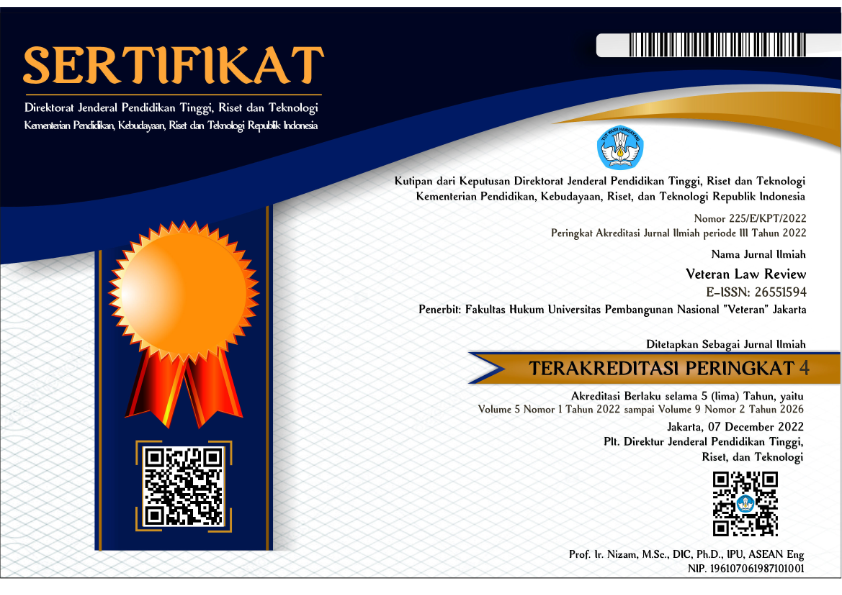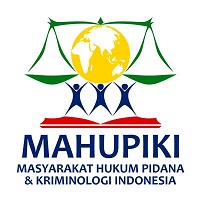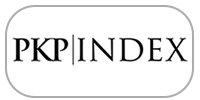Plagiarism Policy
Veteran Law Review Editorial Team acknowledges that plagiarism is unacceptable and therefore prescribes the following policy which states action (prohibition) when plagiarism is identified in an article submitted for publication in the Veteran Law Review
Definition:
Plagiarism is an act intentionally or unintentionally in obtaining or trying to obtain credit or value for a scientific work, by quoting part or all of the work and / or scientific work of another party that is recognized as scientific work, without stating the source accurately and adequately.
For that, then:
Articles must be original, unpublished, and not pending publication elsewhere. The material is taken verbally from another source which is clearly identified so that it differs from the original text.
If plagiarism is identified, then, the Chief Editor is responsible for reviewing the article and will take action according to the level of plagiarism detected, with the following:
Increase Plagiarism
1. Tracing a short sentence from another article without mentioning the source. Action: Author was given a warning and a request to change the text and cite properly.
2. Plagiarize most of the other articles without proper citation and do not mention their source. Action: The submitted article is rejected for publication in the Veteran Law Review and the author may be penalized for not being allowed to be published in the Veteran Law Review Journal.
3. The Veteran Law Review Editorial Team will use the TURNITIN plagiarism check application to see the plagiarism percentage of the author's articles. The upper limit set by the Veteran Law Review is 25%. If the article has a percentage of more than 25%, then the Editor will ask the author to correct or reject it.
If the author is proven to have submitted the manuscript to the Veteran Law Review by jointly sending it to other journals, and this overlap is found during the reviewer process or after publication, then an action is given according to point 2 above.

















